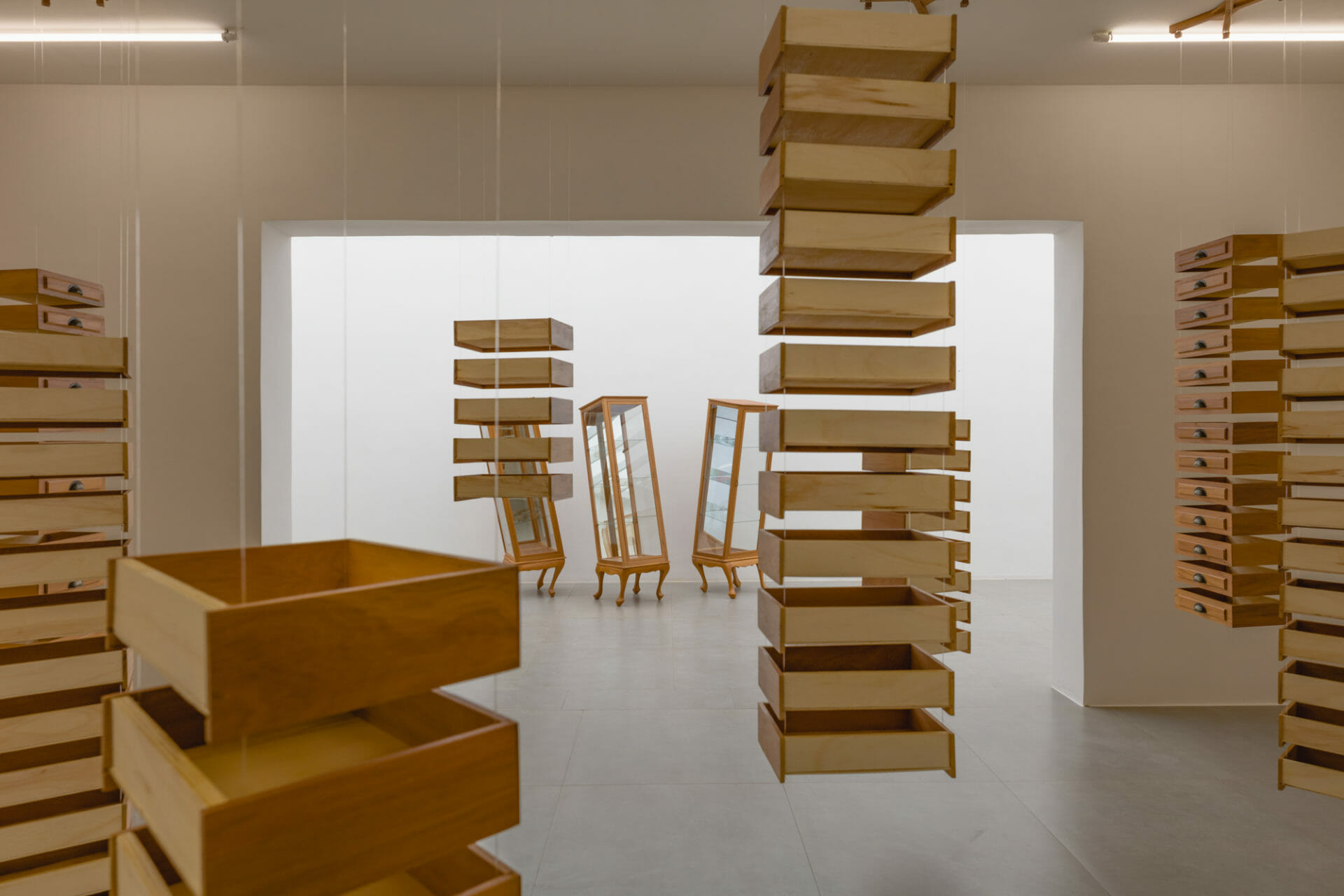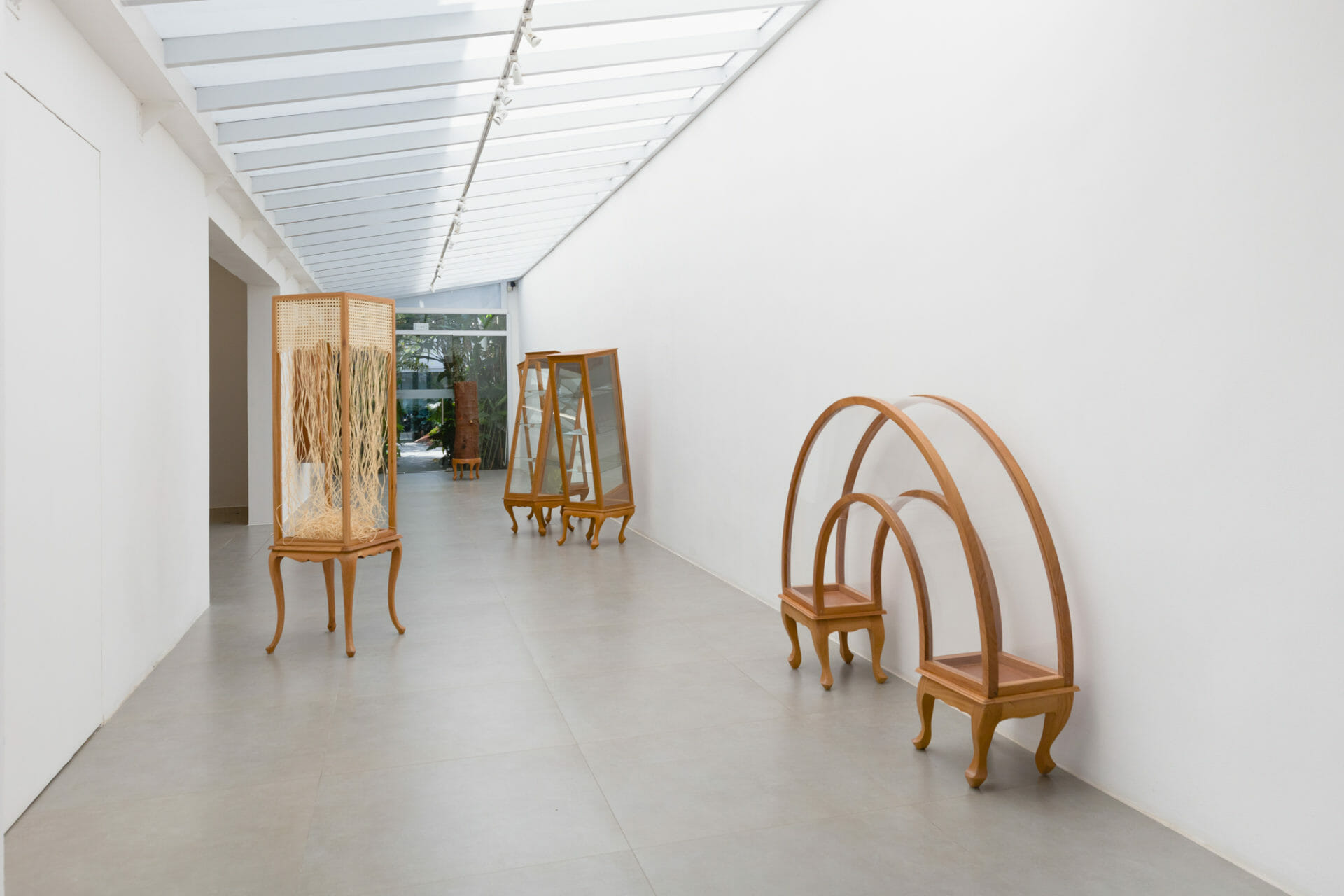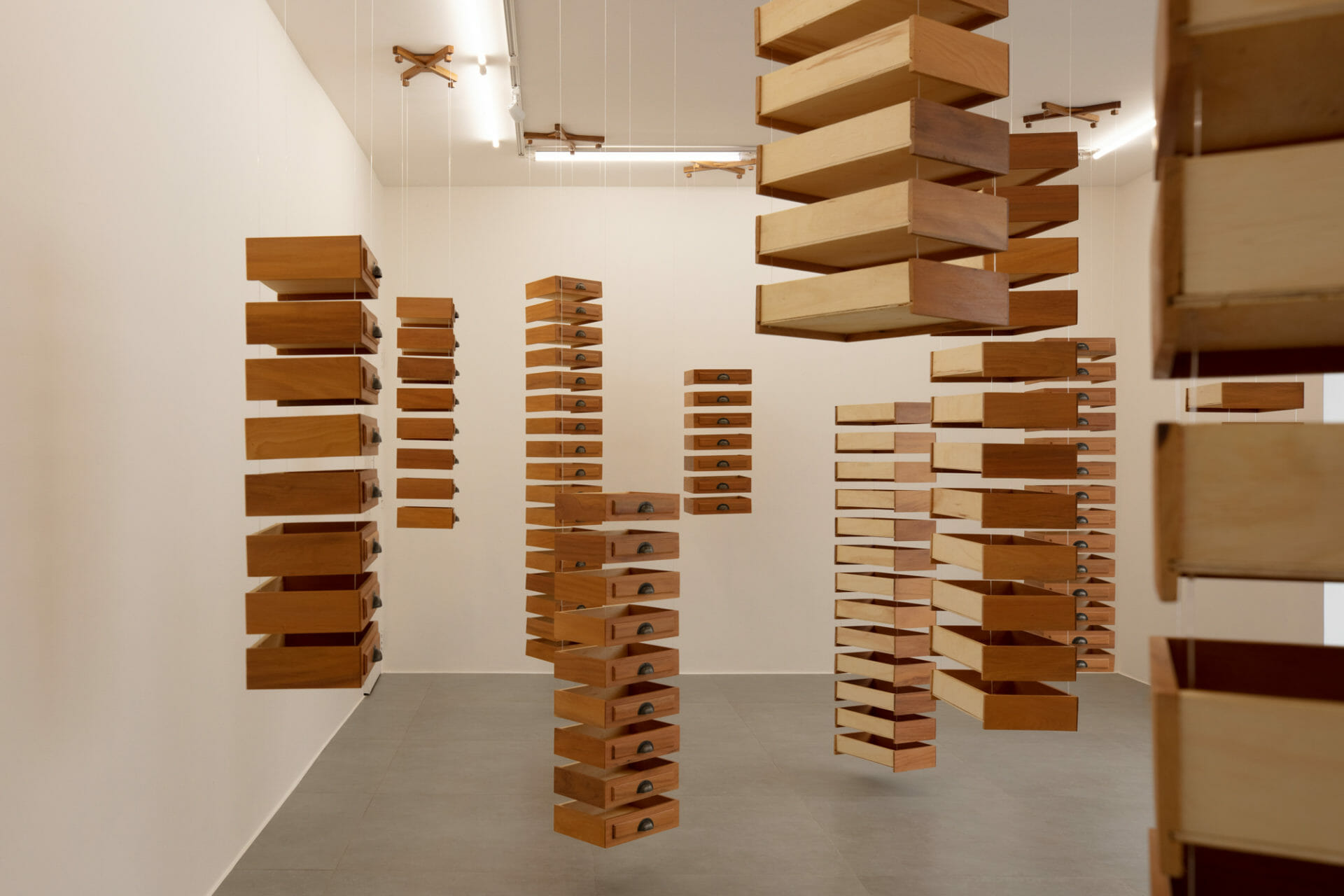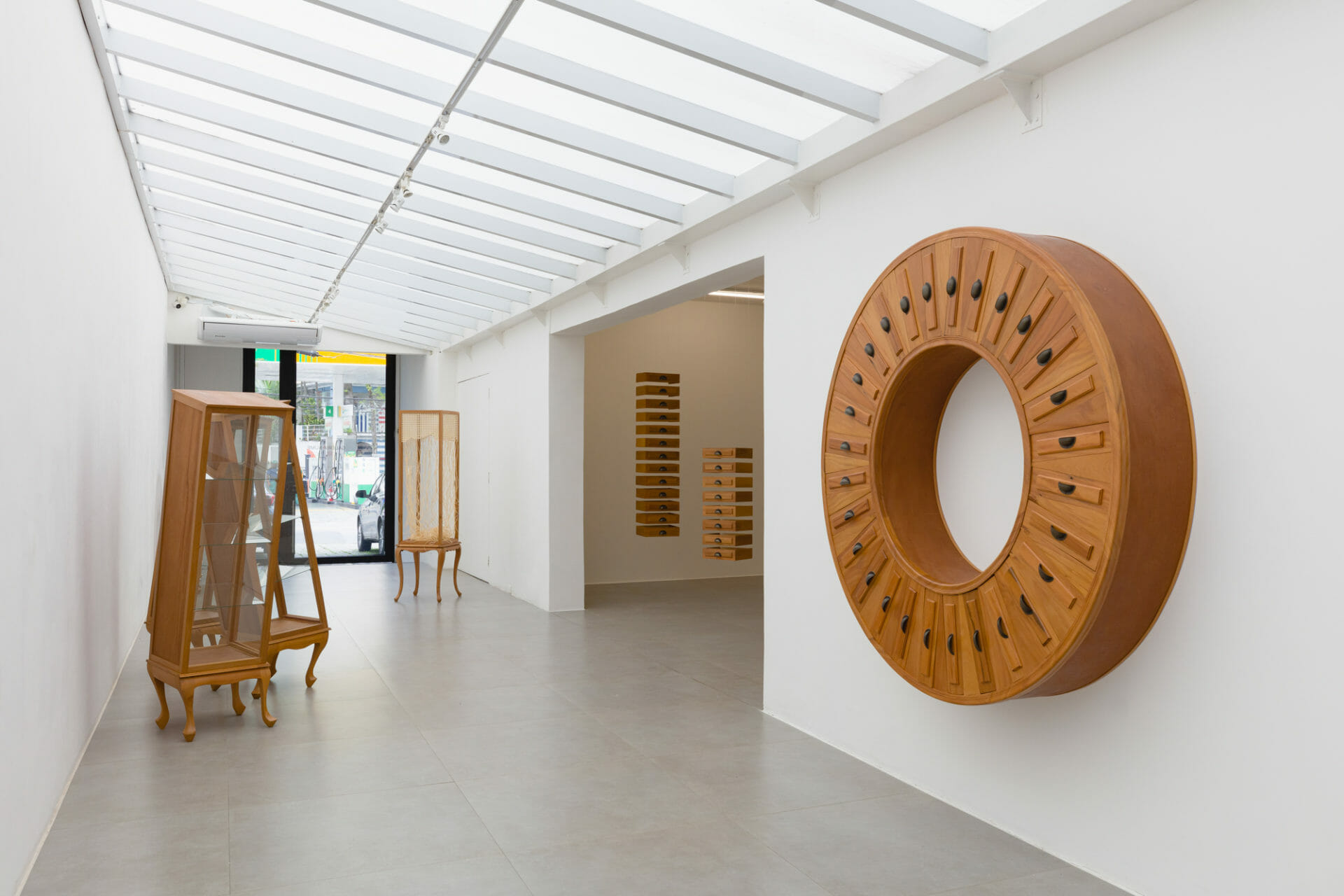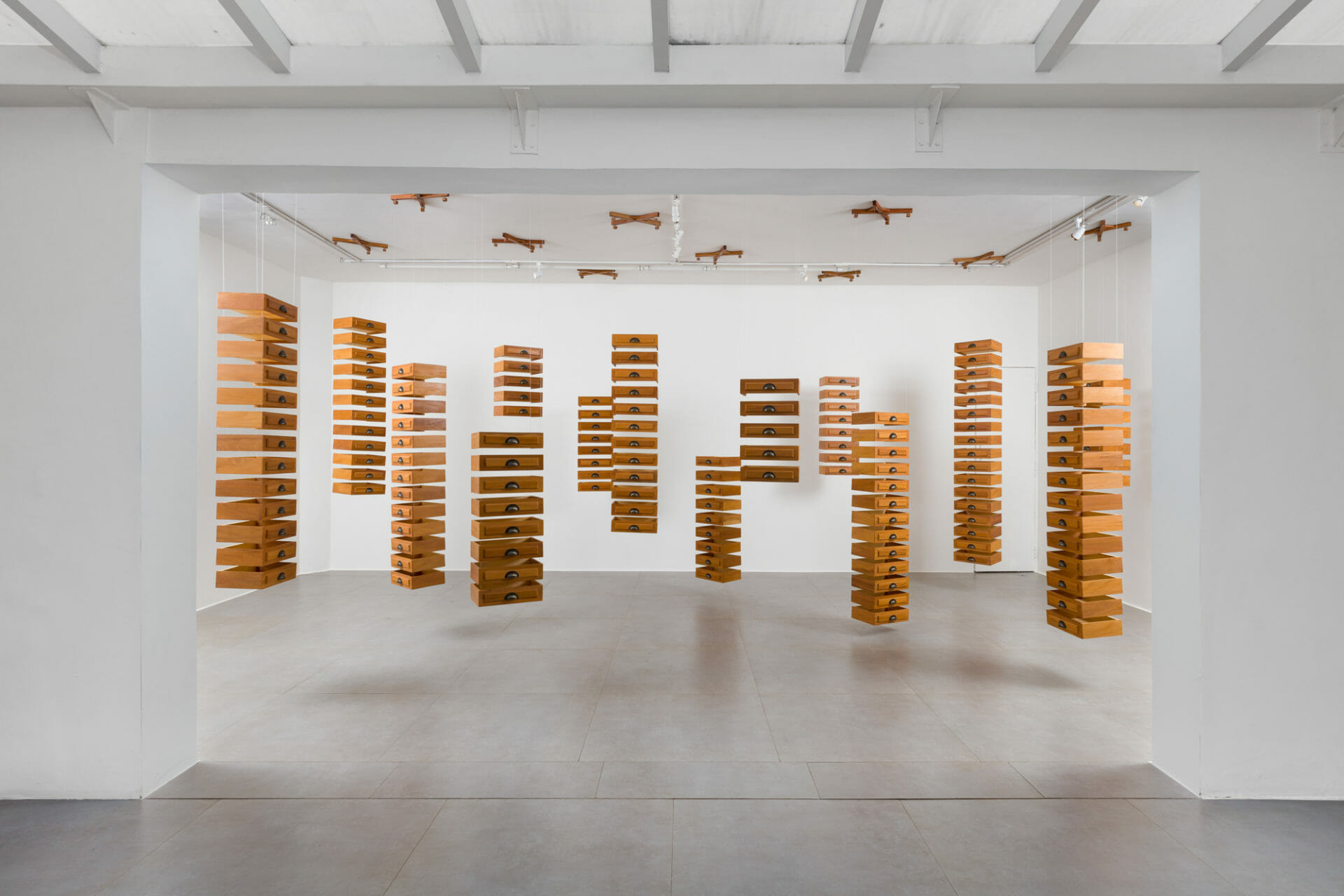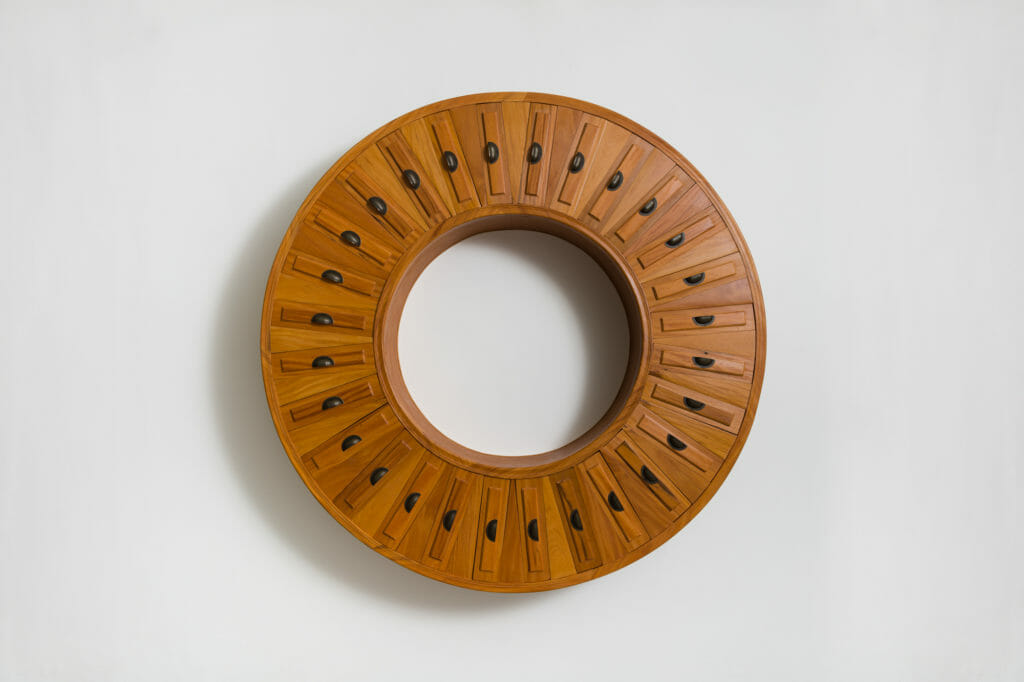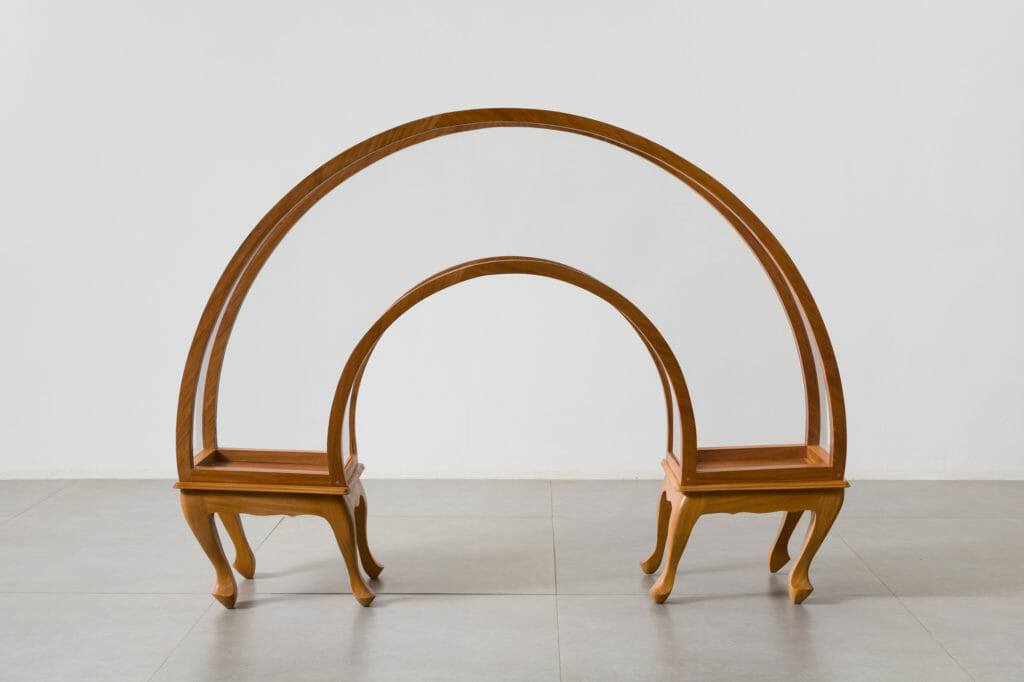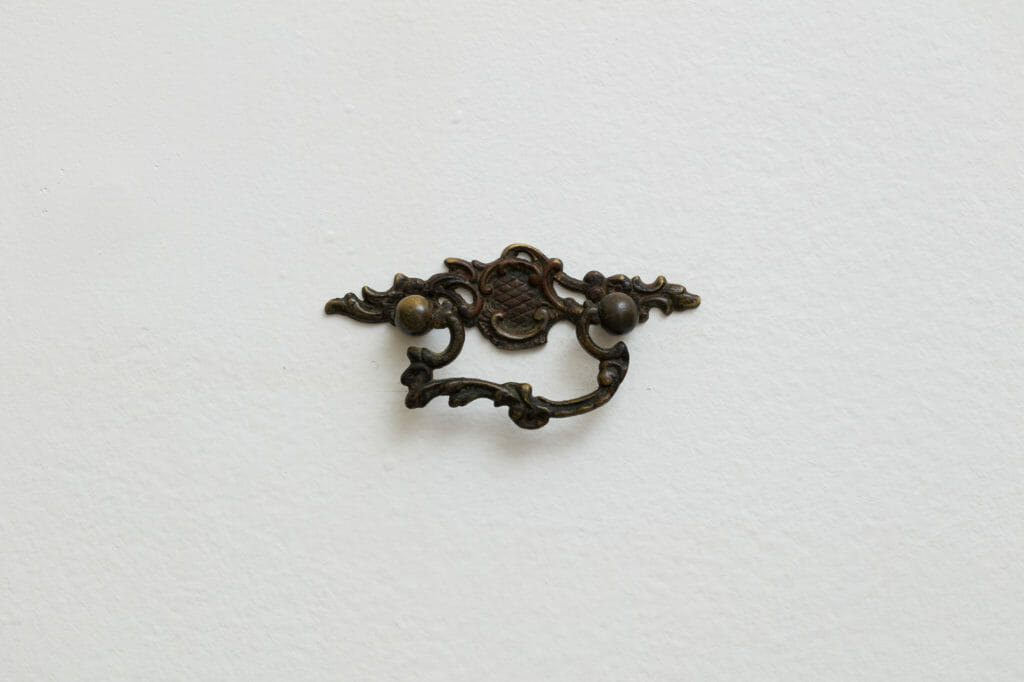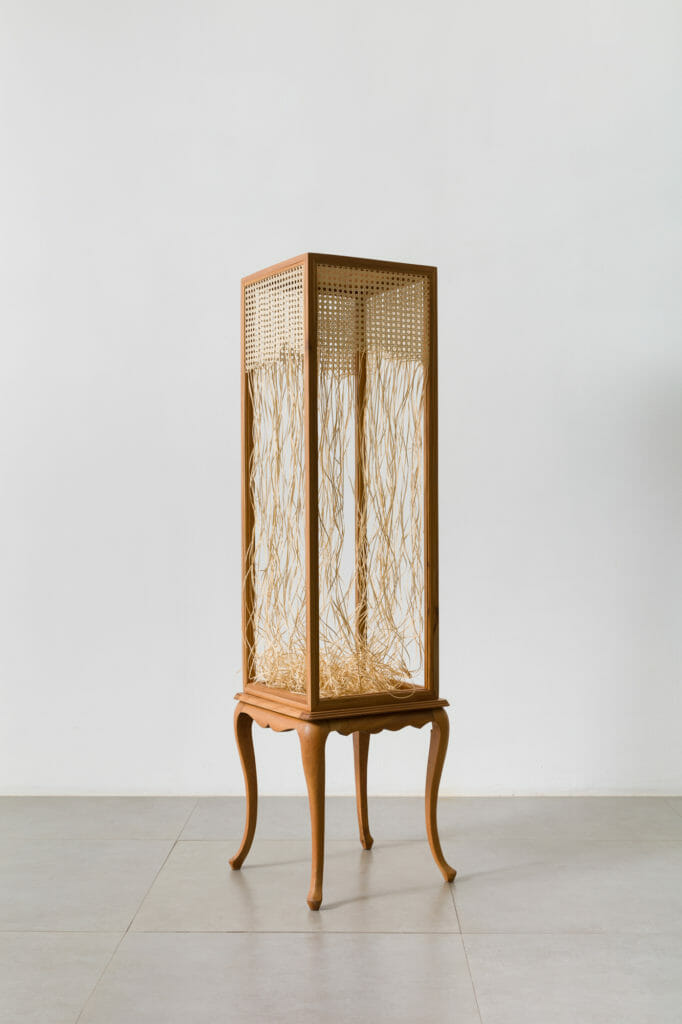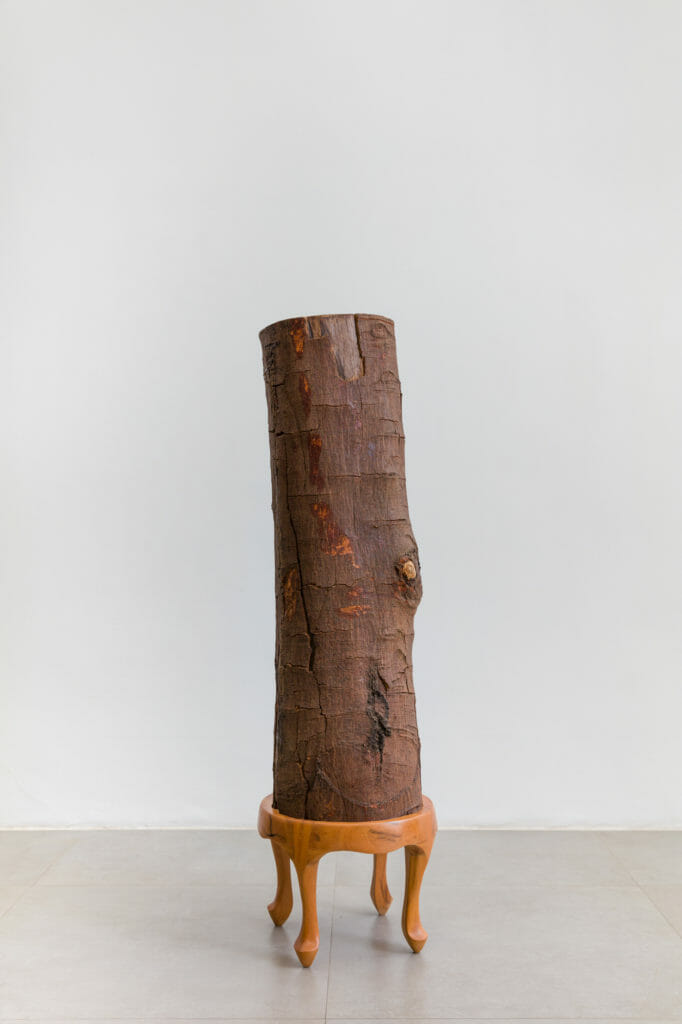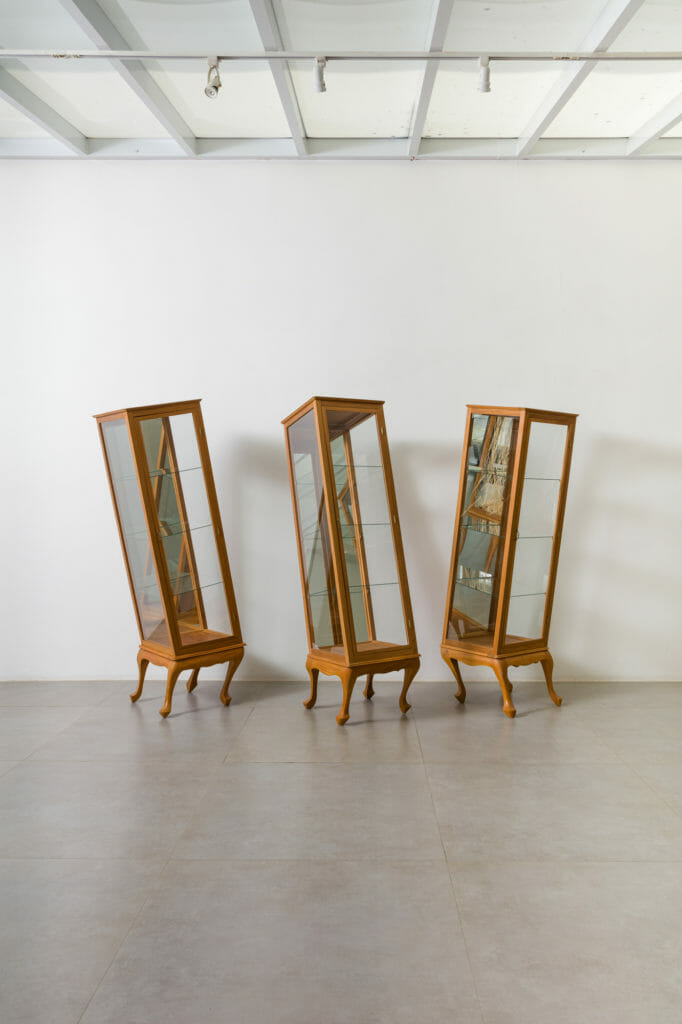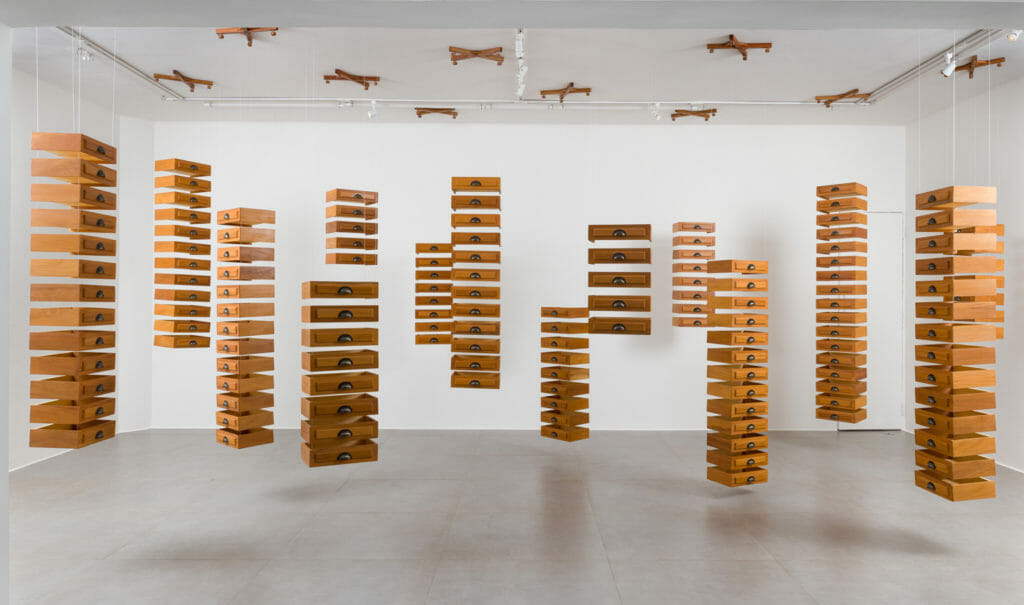The house was sold with all the souvenirs
all furniture all nightmares
all the sins committed or about to commit the house was sold with its slamming doors
with its channeled wind its view of the world
its imponderables
For twenty, twenty bucks.Carlos Drummond de Andrade
Wire: Drawer of oneself, Craft of Being
Without the intermediation of furniture and utensils, a house appears as an empty museum, without recollections, memories, or guilt. Waiting for the furniture, each with its pre-defined corner and function, the domestic space recalls an exhibition scene where every inserted object hides a story.
In drawers, portraits, passport, letters, and nostalgia. On the shelf are the marks of the altar, the candles, the stain of the glass on thirsty nights. On the doorstep, the size of the children, the passing of years. In its new forms, the furniture molds itself to the life that inhabits its surroundings.
In Lisbon, I once heard the story of a Portuguese lady who guarded the desk of her late husband, a poet. On the top of the furniture, between the grains of wood, overlapping words were engraved, a writing trace during poetry dawns.
Perhaps, the accommodation of things, the mere utility, is the smallest function of furniture. Transformed by time into memory, a mirror of our gestures, objects are marked. They fray, splinter, bend, and come to life. They act serenely as observers of our most intimate events.
In “Wire: Drawer of Oneself, Craft of Being”, by Francisco Nuk, the convenience and usefulness of the furniture are dismantled when the artist breaks its rigidity, turning the absurd into a persecuted concept. Everything in his work opens up to distorted clues. Distorted cabinets no longer balance the crystals, the drawers float lightly without the weight of archived secrets, the carefully carved circular dresser confuses those in storage.
Paulo Kassab Jr.
